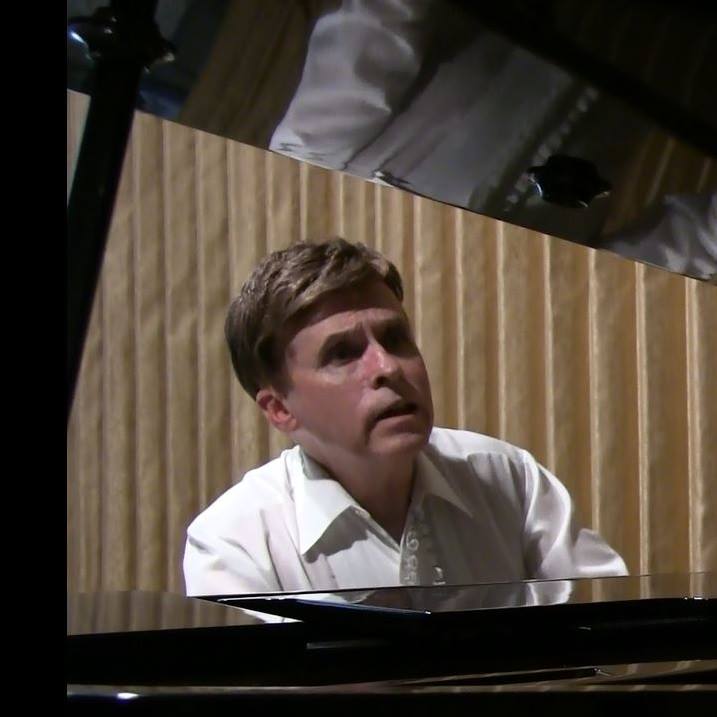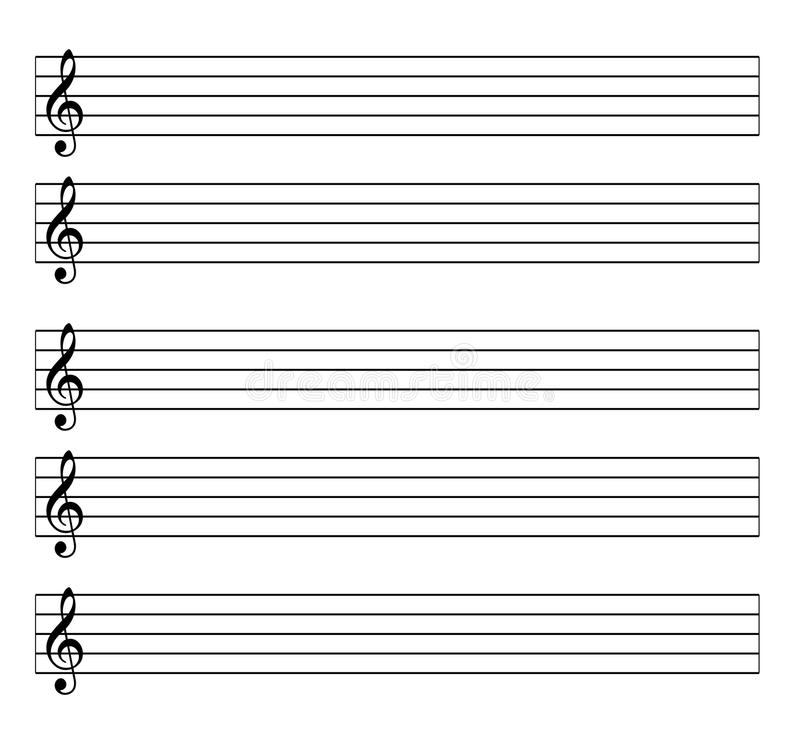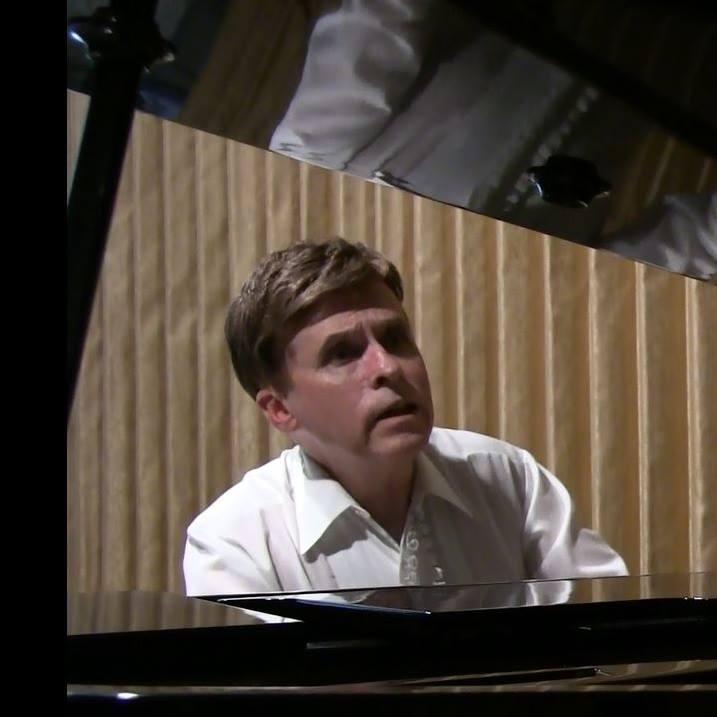Great to have you back!

1
Videos1
Sheets
About
Captivated as a child by the beauty and emotional power of music, I decided I would become a composer. My Romantic stylistic aspirations, however, were profoundly at odds with the restrictive musical atmosphere of that time, so I instead obtained a degree in piano from Duke University, followed by a year of study at Juilliard. But I continued to pursue my original dream of composing, eventually maturing into a serious composer with my own original and boldly Romantic style. In addition to four piano sonatas and many shorter piano works, I wrote for chamber ensembles, for voice and chorus, and for piano and orchestra. Only much later did I receive advanced degrees in composition and theory, writing a PhD dissertation on Rachmaninoff's harmonic structures and authoring a scholarly reference volume about that composer.
Now living in Gilbert, Arizona, I am engaged in a long-term project to publish high-quality editions, performances, and recordings of my works and promote them to a wider audience.
Videos
Sheets

Music Sheet 1
$1.00
Interview
What does music mean to you personally?
I have been deeply involved in music since age 10, first as a violinist, then as a pianist, and later as a composer, music theorist, and musical commentator and author. Even when I am merely performing the music of other composers, I feel the electricity of music flowing through me and enabling me to communicate with others. But composing is the principal vehicle by which I express my innermost feelings, my aspirations, my vision of the ideal and the beautiful, and my underlying conviction that life should be a joyful experience. My compositions reveal my soul to the world in a way that no other activity does.
Do you agree that music is all about fantasy?
Many composers, especially Romantic composers like myself, have drawn inspiration from fantasy. One of my preludes invokes a diabolical vision of maleficent creatures scurrying through the dark, and one of my poems for piano seems to suggest some haunted, lonely spirit calling across vast stretches of time and space. Such images can give rise to the raw materials of music. The art of composition then takes these materials and organizes them into cohesive, logically compelling structures. In my own compositions, I like to create the impression of an unfettered flow of imagination, but there needs to be a subtle underlying organic unity to the whole, a musical architecture that can be appreciated by the subconscious mind of the listener.
If you were not a professional musician, would would you have been?
As a youth, I was torn between my love of music and my gift for abstract mathematics. Although I chose music, my love of mathematical logic surfaces from time to time. It has no doubt influenced my studies in music theory, and it is probably also linked to my appreciation for abstract musical structure.
The classical music audience is getting old, are you worried about your future?
I think we will continue to see an influx of new classical-music listeners from non-Western countries, especially the Far East, offsetting any losses to audiences in Europe and North America. Personally, I am not financially dependent on music at this point in my life, so I can approach it as art rather than as a business. And as art, classical music speaks to something universal in the human spirit, so I am optimistic about its future.
What do you envision the role of classical music to be in the 21 century? Do you see that there is a transformation of this role?
Classical music can fulfill a vital role in the years to come, counteracting the dehumanizing influences of technology, information overload, and mass production and consumption. Many observers have expressed fears about the long-term effect on the human brain of our constant immersion in a fast-paced, Internet-driven culture of instant answers and instant gratification. Will we lose our uniquely human capacity to grasp large-scale structures that unfold across time, such as those of classical music? Classical music is threatened by this environment, but it can also be a much-needed antidote to it. For that to happen, of course, classical music must be heard, and fortunately our technology also provides new means of communicating it to the masses, such as YouTube.
When I say that classical music is searching for new ways or that the classical music is getting a new face, what would come to your mind?
I do not think that classical music should try to become something it is not, but it can be presented in new ways to the public, taking advantage of technology that was not available to past generations. Unlike their predecessors, composers and performers today can present their music through instantly available videos, for example, and promote them through social media rather than the concert hall. For maximum effectiveness, those videos need to involve a well-developed visual element, incorporating creative videography such as what we see at Moving Classics TV.
Do you think that the classical musician today needs to be more creative? Whats the role of creativity in the musical process for you?
The drive to creativity has always been a vital part of music-making, so in that regard nothing has changed. Most obviously, creativity is at the core of composing, although composing also involves an analytical element. In fact, composition seems to be a kind of dialectical process for me, in which creative and imaginative impulses constantly interact with the analytical and evaluative parts of my mind.
Do you think we musicians can do something to attract young generation into the classical music concerts? How will you proceed?
Nowadays, young people may be more likely to receive exposure to classical music through social media rather than through formal concerts. They may be more inclined to attend an actual concert if they are playing instruments themselves or if they see their peers doing so. Therefore youth attendance at concerts is tied to active youth participation in music and to music education. We can hope that as more and more people become aware of the growing body of scientific evidence showing the positive effects of musical training on cognitive development, academic achievement, and success in later life, youngsters will be more strongly encouraged to take up the piano, the violin, or the clarinet, or to participate in a choral group.
Tell us about your creative process. Do you have your favorite piece (written by you) How did you start working on it?
Melody is central to music, and during my more creative periods fragments of melody seem to float constantly through my brain, mutating and evolving. Eventually a melody - or a significant piece of melody - coalesces in my mind, often when I am engaged in some unrelated activity, or even while I am sleeping. So I have on more than one occasion arisen in the middle of the night, frantically searching for a scrap of paper and pencil to capture the melody going through my head. One of my favorite compositions was a piano nocturne commissioned in 2017 for two pianists who were battling cancer. I wanted the piece to capture the infinite beauty of life and my hope that the two honorees would embrace it passionately and vigorously. After a few days, the melody came to me in rough form and I hastily jotted it down. But that was only the start of the process. The melody had to be developed, its harmonic and contrapuntal implications explored, the musical and dramatic form of the emerging piece determined. I also developed a secondary, related but complementary melody for a middle section. After the first draft was complete, the piece then went through several weeks of successive revision. I subtitled the final work "Passionate Melody of Life."
We, Moving Classics TV, love the combination of classical music with different disciplines: music and painting, music and cinematography, music and digital art, music and poetry. What do you think about these combinations?
I admire composers who create music to combine with film, drama, visual art, or dance. Personally, though, I prefer to compose music that is governed by its own musical logic, unencumbered by extramusical requirements. Of course, music and poetry have long been united in song, and I have occasionally found appropriate poems and set them as songs. Perhaps my most successful song was based on a poem I had written myself in response to a deep personal crisis. Years later, as an afterthought, I decided to set it as a vocal work, and somehow the music seemed to arise naturally from the words and the moods of the poem, resulting in an emotionally intense and satisfying whole.
Can you give some advice for young people who want to discover classical music for themselves?
I would encourage them to engage in it actively, not passively. Learn to play an instrument. Learn to read music, but also find good online recordings of the pieces you are playing and notice how people play them differently. Try to figure out the mood of a piece, and convey that mood in the way you play it.
Now it is a common practice in the media to talk that the classical music is getting into the consumption business, do you agree? We are speaking about the supply and demand rules and how to sell your “product” in your case your compositions. How do you see it?
My philosophy is that there will always be a market for truly beautiful music, and the listeners in that market are the ones for whom I compose or perform. There may be an even larger market for music that I consider not so beautiful, but since I also have marketable skills outside of music, I have never needed to sacrifice my artistic ideals.
Do you have expectations what regards your listeners, your audience?
My music is written for people who value life and beauty and who are drawn to music that reflects that sense of life. If my listeners do not enjoy my music, then either I have failed to reflect that sense of life, or else I have not yet reached the right audience - more likely, the latter.
What projects are coming up? Do you experiment in your projects?
I have completed a revised version of my Piano Sonata No. 3, which I will soon start to prepare for performance and then for recording. I also am working on revisions to two of my chamber pieces and preparing clean modern editions for them, after which I will work on getting them performed and recorded. Over the longer term, transcriptions of a couple of my works have been requested for different instruments, and I also have some older compositions, some of them still in the form of handwritten manuscripts, for which I need to publish good editions. Of course, I will write new compositions as the occasion arises.
Copyrights © 2019 Moving Classics TV All Rights Reserved.
